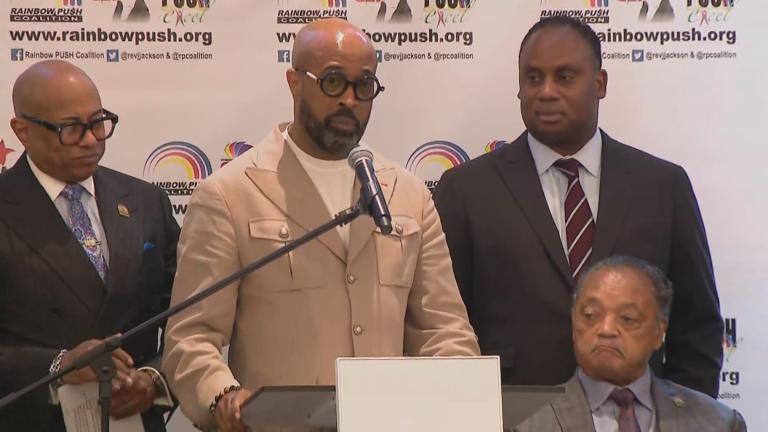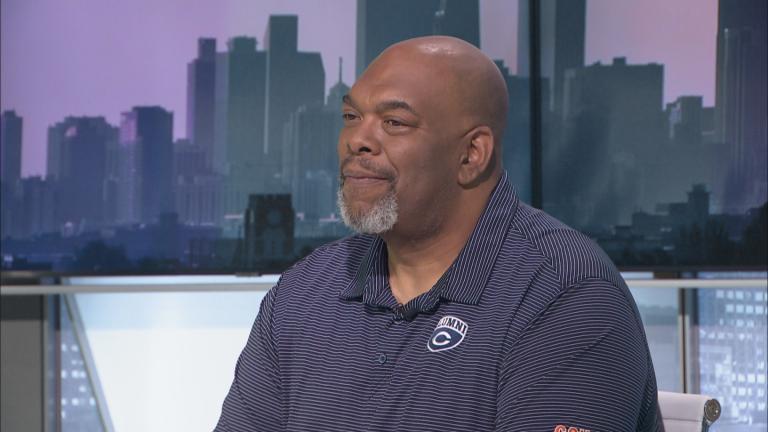Judge Ketanji Brown Jackson will be the first Black woman to sit on the Supreme Court. Jackson reflected on the magnitude of her historic confirmation while speaking outside the White House Friday.
“It has taken 232 years and 115 prior appointments for a Black woman to be selected to serve on the Supreme Court of the United States, but we’ve made it,” said Jackson, while speaking on the South Lawn.
Jackson watched with President Joe Biden as the U.S. Senate voted to confirm her nomination Thursday. The vote fell mostly along party lines, 53-47, with three Republicans joining Democrats in voting yes. Jackson is set to be sworn in as the 116th Supreme Court Justice sometime this summer, when Justice Stephen Breyer steps down. Biden nominated Jackson to replace Breyer who is retiring at the end of the current Supreme Court term.
“This moment is so monumental because Jackson’s appointment to the Supreme Court provides the beacon of hope as a Black woman lawyer, as a member of the Black Women Lawyers’ Association of Greater Chicago. This is such an inspiring moment,” said Kalia Coleman, former President of the Black Women Lawyers’ Association of Greater Chicago.
Jackson will not only be the first Black woman to sit on the Supreme Court, she’ll also be the first former public defender.
“Historically, the path to becoming a judge, even local state and federal courts, is to be a prosecutor or work for a large law firm or be litigated for the government, and this would typically leave out former public defenders, civil rights lawyers and other sorts of attorneys that are working for the NAACP Legal Defense Fund and any other organizations that are challenging the government, so having this confirmation is so significant because we see now there is more of a possibility for professional diversity to be represented in the future,” said Audra Wilson, president and CEO of the Shriver Center on Poverty Law.
Legal experts say Jackson’s experience as a public defender and member of the U.S. Sentencing Commission gives her a unique perspective on the criminal legal system, one that could influence discussions and ultimately decisions on the conservative leaning court.
“It doesn’t change the conservative majority, but there’s a voice that will be present during those discussions that was not present before,” said Coleman. “That voice will be one that comes with different experiences and hopefully based on her different experiences and unique perspective that she will bring. While it doesn’t change the majority ideological composition, hopefully it creates a different level of consideration based on how she will articulate her views and her perspectives about different issues.”
One case the Supreme Court will hear this fall is a challenge to Harvard University’s use of race as a factor in admissions. It’s a case that could impact affirmative action policies nationwide. Jackson currently serves on Harvard’s Board of Overseers, and has already said she’ll recuse herself from the case due to her Harvard ties.
“The truth of the matter is that Supreme Court Justices typically make their own decisions as to whether to recuse themselves. Federal law requires federal judges to disqualify themselves in any proceeding in which their impartiality might reasonably be questioned, so, although she doesn’t have to follow that standard, I think it’s probably the prudent thing to do,” said Wilson.
Politicians are calling Jackson’s confirmation a groundbreaking moment including Mayor Lori Lightfoot, who said in a statement, “She (Jackson) may be the first, but she will certainly not be the last. She will continue to inspire many others who look like her to follow in her footsteps.”
“I think now Justice Jackson’s confirmation of her appointment to the court will encourage others who may have similar career paths to be audacious enough to actually express their interest in serving on the Supreme Court, when before many folks who were prior federal defenders thought that it was a complete impossibility,” said Coleman. “Black women lawyers thought it was a complete impossibility. And now those impossibilities are now filled with hope and assurance that you too can also ascend to the highest court in the land.”








